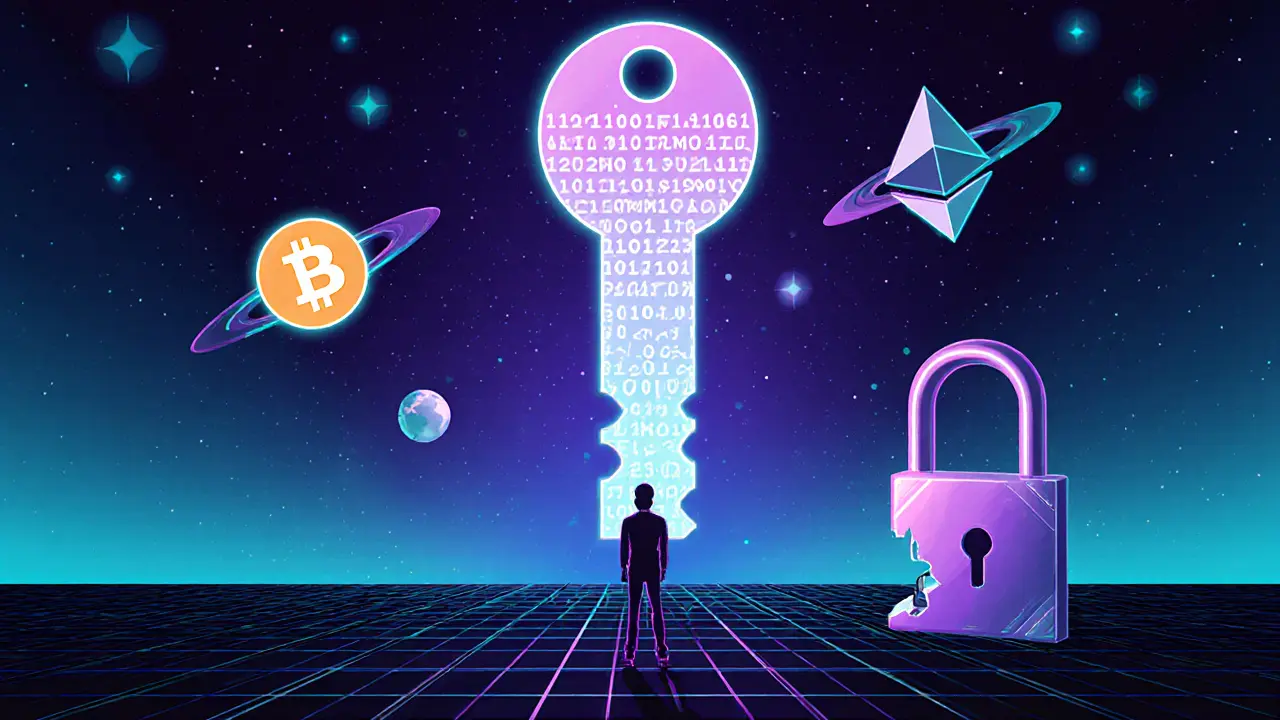Private Keys: What They Are and Why They Control Your Crypto
When you own cryptocurrency, you don’t actually hold coins like cash—you hold a private key, a secret code that proves you own a specific amount of crypto on the blockchain. Also known as crypto key, it’s the only thing that lets you spend, send, or transfer your digital assets. Without it, your coins are locked forever—even if you know your wallet address or have a screenshot of your balance. Think of it like the only key to a safe deposit box. If you lose it, the bank can’t help you. No customer service, no password reset, no recovery option. The blockchain doesn’t care who you are—it only responds to the correct key.
Private keys are linked to crypto wallets, software or hardware tools that store your keys and let you interact with the blockchain. Also known as digital wallets, they don’t hold your coins directly—they just manage access to them. Your coins live on the blockchain, visible to everyone, but only your private key can move them. That’s why scammers target private keys: steal the key, steal the crypto. And yes, this has happened to millions. Many people confuse private keys with seed phrases, a human-readable backup of your private key, usually 12 or 24 words. Also known as recovery phrases, they’re easier to write down, but if someone gets your seed phrase, they can rebuild your entire wallet. Treat it like your private key—never share it, never screenshot it, never store it online. Most lost crypto isn’t stolen—it’s forgotten. People delete wallets, lose USB drives, or write down seed phrases and misplace them. Some even throw away old phones thinking they’re just getting rid of junk.
That’s why the posts below cover real cases: how people lost access to millions because they didn’t understand key management, how exchanges that claim to "hold your keys" aren’t really yours, and why tools like hardware wallets exist not as luxury items, but as basic safety gear. You’ll find breakdowns of wallet types, what happens when private keys are exposed, and why even "easy" crypto apps can be dangerous if you don’t know what’s really happening behind the screen. This isn’t theory—it’s survival. If you own crypto, you own your private key. And if you don’t know what that means yet, you’re one mistake away from losing everything.
How Private Keys Control Your Crypto Assets
Private keys are the only thing that gives you real ownership of cryptocurrency. Without them, your crypto is just an IOU. Learn how they work, how to store them safely, and why self-custody matters more than ever in 2025.
learn more